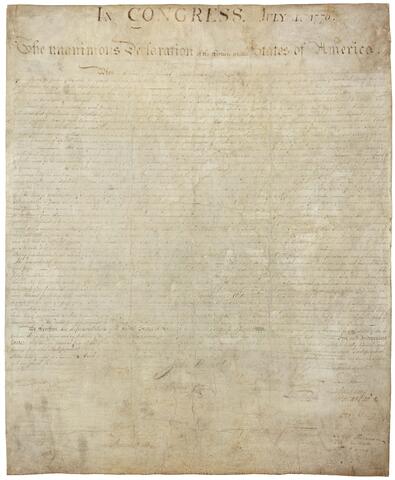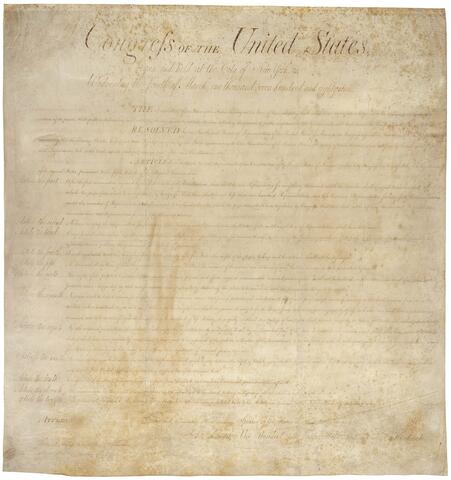Charters of Freedom
The simple truth at the heart of the American Revolution is that people are born with certain natural rights, including "Life, Liberty and the pursuit of happiness," that do not come from presidents, kings, or charters. These and other rights of the American people are secured by this nation's founding documents: the Declaration of Independence, Constitution, and Bill of Rights. Known collectively as the Charters of Freedom, these three documents are on permanent display in the Rotunda of the National Archives Building.

Declaration of Independence
The Declaration of Independence expresses the ideals on which the United States was founded and the reasons for separation from Great Britain.
Constitution
The Constitution defines the framework of the federal government of the United States.

Bill of Rights
The Bill of Rights is the first ten amendments to the Constitution. It defines citizens' and states' rights in relation to the government.
These documents were drafted in the heat of dramatic, fast-moving events. They represented a monumental achievement to the nation's Founders who believed their experiment in self-government held the promise of liberty for all mankind. The principles established in the Charters have bound the nation together through more than two centuries of growth and turmoil. American patriots of every generation have paid in blood to defend these principles.
The documents on display in this gallery chronicle the creation of the Charters and their impact on events in this country and around the world. They reveal the story of earlier generations of Americans who had both the vision to see a better world and the audacity to build it.